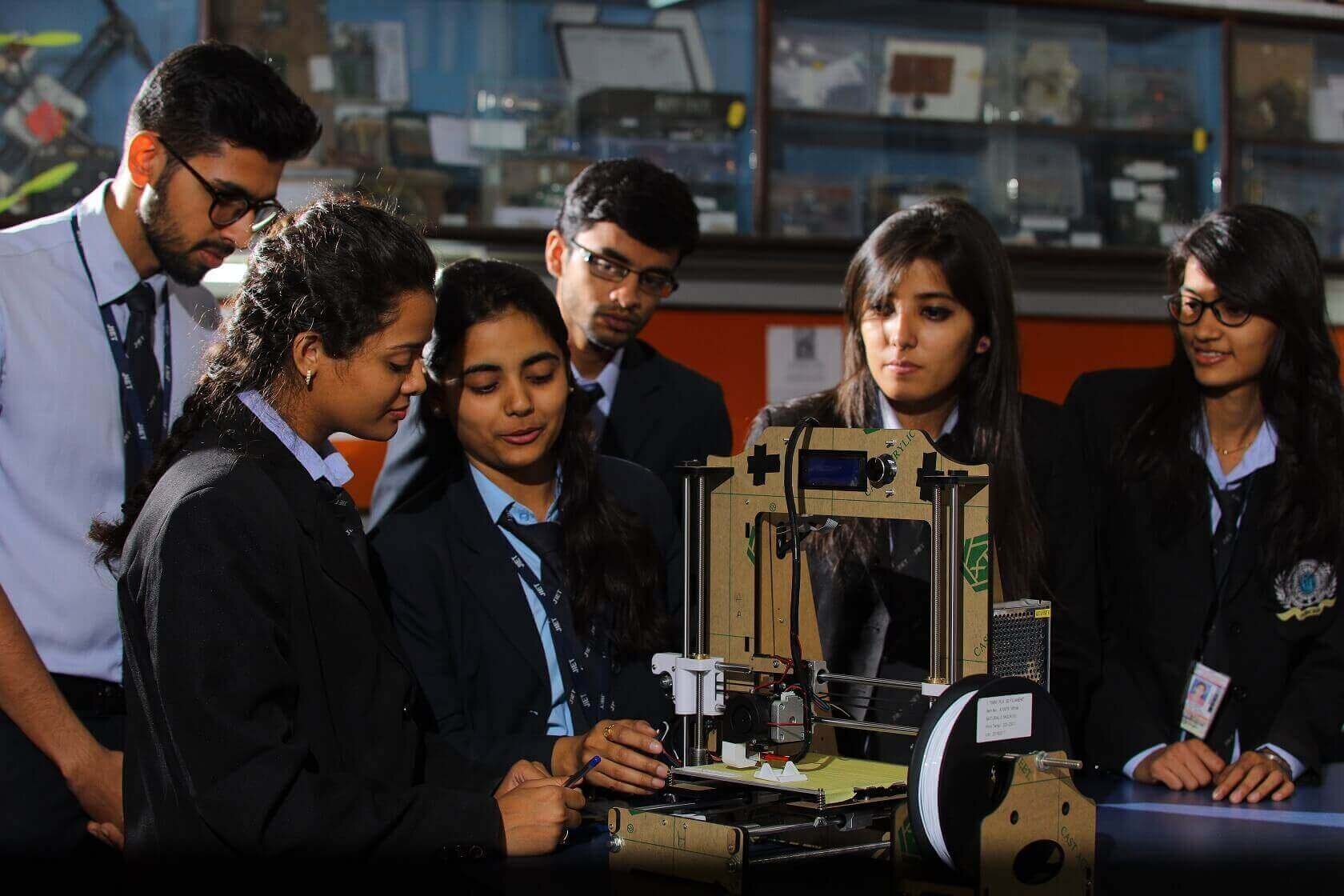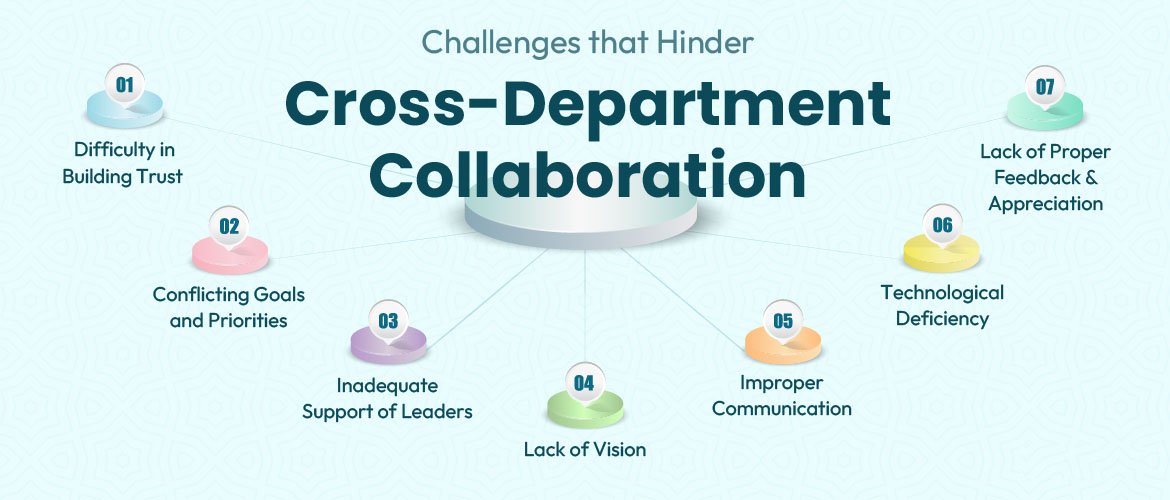1. Why JIET for Electronics and Communication Engineering?
- The students are imparted knowledge by the best faculty who aim to provide analytical information, product information, and implementation information in the field of communication and electronics.
- JIET strives to provide students the opportunity to work with bigger firms and get hired on their merit and skill set. Companies like Wipro, Bloombrain, Infosys, Researchwire, etc are the top recruiters in this institution.
- It helps students to shape their analytical knowledge and apply it in real-life situations
- The institution aims towards lifelong enhancement of the individual to be adaptive and creative while being intellectually sharpened.
- The course mainly focuses on communication along with parts in the electric field. This knowledge can be applied to solve problems of social relevance.
- JIET trains young minds to bloom with creative ideas and excellence to pursue higher research and education for the betterment of the world and the advancement of the individual as a whole.
2. Why Choose Electronics and Communication Engineering ?
- The branch being highly in demand is the largest and fastest growing sector in the telecommunication industry
- The dynamicity of this branch of study makes it all the more important and filled with opportunities for personal as well as global growth and development.
- It is an ever-widening branch that demands rapid enhancements and there always remains a huge demand for employable and skilled engineers in this domain.
- It is a very labor-intensive industry where there remains increased production and demand by the government and businesses for communication equipment.
- One can learn to examine complex problems through analysis and using the correct modern fool set to design better layouts of the programs.
- Students are trained to create eco-friendly products that are sustainable for the long run as well as beneficial for the world.
- Future prospect is promising as the opportunity within the nation and across the globs is increasing at a steady pace.
3. What is Electronics and why should one opt for Electronics & Communication Engineering at JIET?
Electronics is the profession of applying scientific principles to the design and development, fabrication, repair & maintenance of Electrical/Electronic Machines, Instruments and Communication systems. Prior knowledge of Electronics is required in all domains of engineering like Chemical, Aeronautical, Electrical, Mechanical, Computer, Civil, Automobile sectors etc. All the requirements for the knowledge in electronics field fulfill at ECE department of JIET.
4. What are the scope and application areas of Electronics & Communication Engineering?
In the present era the field of Electronics & Communication plays an important role in almost every sphere of our life. Some of the Present and Emerging Technologies are:
Wireless Communication; Direct To Home; Remote Sensing; Earthquake Monitoring; Microwave Communication; Speaker Recognition; Radar; Robotics; MEMS; Fiber Optics; GPRS; Electronics Cooling System; Thin Film Technology; Brain Computer Interfaces; Advanced Optical Networks; Display Technology; Electrocardiograph (ECG); Optical Computing; Wireless Sensor Networks; Embedded System; Teleconferencing; Nanotechnology; Internet Telephony; Satellite Communication; Smart Technology; Space Engineering.
5. What are the career opportunities available to Electronics and Communication Engineers?
An Electronics engineer can work at the frontier of high technology and is involved in research, creation of new ideas, design and development of new products and technologies, manufacturing and marketing activities. Electronics & Communication Engineering offers career scope in DRDO (Defence Research and Development Organization); ISRO (Indian Space Research Organization); Public and Private Sectors; Defence Services and Engineering services.
Electronics and Communication Engineers get equal opportunity to explore and build a career in IT sectors.
PM Modi’s ‘Make in India’ concept is a push to manufacturing sector and will open plethora of jobs for Electronics Engineer.
Set up of 8 electronics manufacturing hubs and 7 electronics manufacturing clusters across the country to reduce imports.
PMs ‘Digital India’ vision: 2, 50,000 villages to be integrated with National Optical Fibre Network.
National Policy on Electronics: To make India a globally competitive destination for Electronics System Design and Manufacturing by 2020
Some job titles :
- Service Engineer
- Software Analyst
- Technical Director
- Field Test Engineer
- Senior Sales Manager
- Network Planning Engineer
- Customer Support Engineer
- Electronics and Communications Consultant
- Research & Development Software Engineer
6. What kind of Infrastructure is available in the department of ECE at JIET?
The department of ECE at JIET has state of the art, modern and well-equipped Laboratories and smart class rooms with adequate facilities. One separate laboratory course is associated with each core course in the undergraduate program. Some of the prominent Labs are Robotics Lab, Project lab, Digital system design Lab, MATLAB, RF lab, Antenna Lab, Advanced Communication Lab, Microwave Lab, VLSI lab, optical fiber & Optisys Lab, Microprocessor & controller Lab etc.
7. What is the placement record of students for the department of ECE at JIET?
Over the last few years, the ECE department of JIET has seen excellent placements, with over 80% of its students placed in public and private sectors. This includes students who opt for higher studies. The students have been placed as Design Engineer; Marketing Professionals; Sales Engineering; System level Engineer in various organizations including:
- Public Sectors: Indian railways, Airport authority of India, Doordarshan, Kenera bank, Corporation bank, PNB bank, BPCL, , ISRO, BEL, BHEL, BSNL,MTNL,SAIL, NTPC, Indian Railways, ONGC, GAIL
- Defence Services: Indian Air-force, Navy, Army
- Private Sectors: Capital IQ, TCS, HCL, Wipro, Hilti, L& T, Infosys, WIPRO, TATA Telecom, Siemens, AIRTEL, Reliance Communication, Catalyst Business Solution, NSN, Ericsson
8. What are the programs offered to improve the employability of students at ECE department of JIET?
We organize regular workshops and conduct seminars for value addition of the students on the latest topics like in the area of Embedded Systems, Wireless Communication Systems Robotics Regular programmes for overall personality & career skill development are organized with the help of expert trainers.
Regular Industrial visits are also organized to give the students about the feel of work culture in the industry. To groom its students and increase their chances of employability, the department conducts personality and skill development programs where the focus is on developing the following skills.
- Communication Skills.
- Goal Setting and Motivation.
- Summer Training.
- Industrial Visits.
- Time Management.
- Public Speaking.
- Group Discussions and interviews.
9.What is the scope of research in the department of ECE at JIET?
Research is the main focus in the Faculty of Engineering and Technology in general. Latest equipment and software are available in the department of Electronics and Communication Engineering and moreover the students can access e-Journals (IEEE & Springer etc), to explore latest developments. Department is also having the facility of PhD in Electronics and communication.
10. What kind of faculty is available in the department of Electronics & communication Engineering at JIET?
The core faculty in the department comprises distinguished academicians from the best institutions and leading professionals. The faculty lays great emphasis on continuous evaluation by means of well designed tutorials and practical experiments. Every effort is made to reinforce the concepts taught in the classroom. Apart from teaching, the faculty members have been vigorously pursuing research and have been regularly publishing research papers in various National and International Journals of repute as well as in prestigious conferences.
11. What are the various courses in the field of Electronics and Communication?
Following are the various courses in the field of Electronics & Communication in ECE department of JIET:
- B.Tech(Electronics & Communication Engineering)
- M. Tech (Digital Communication )
- PhD (Electronics & Communication)
12. What is the intake of the department?
- B.Tech (Electronics & Communication Engineering) - 60
- M. Tech (specialization in digital Communication) B.tech-18
- PhD – 5 candidates under each guide
13. What is the maximum package an ECE engineer received in last year placement?
ECE engineer has received 12.4 lac package in last year placement.
14. What does an Electronics & Communication Engineer do?
All of the applications which make our life easier and enjoyable such as Television, Radio, Computers, Mobiles etc. are designed and developed by Electronics and Communication Engineers
Design and maintain satellites, which bring TV, telephone and Internet service into remote and rural regions
ECE Engineers also creates advanced communication facilities like video conferencing which bring people together from all over the world Develops programs for various control and communication systems.
15. Whether the department of ECE at JIET is accredited by anybody in India or abroad?
Yes, the programme is accredited by the National Board of Accreditation under the Ministry of HRD Government of India (NBA) and National Assessment and Accreditation Council (NAAC).
16. What is the admission procedure?
Institute follows the counselling procedure for 85% seats and 15% seats are filled by direct admission which require 60% marks in 12th board exams. Whole process of admission follows the norms of the University and AICTE.
17. Is there an Alumni Association?
Yes Institute has an active Alumni Association. We have meetings of the Alumni Association every year. The Alumni are in constant touch with the placement cell keeping informed about the recruitment status of the company, which they are working for support is always received in terms of donation of books and helping the junior students in getting their internship and project.

































